Secretary-General António Guterres and President Austria Alexander Van der Bellen
(Hofburg - Vienna, 11.5.2022)
Ladies and Gentlemen – good morning.
I want to thank President Van der Bellen, and please convey my deep gratitude to the Government and people of Austria for their excellent hospitality in relation to this visit, but also structural hospitality for the UN agencies in Vienna – an outstanding place to work due to the generosity of the Austrian government and Austrian people.
It is wonderful to be back in Vienna – an important hub of the international system and a cherished home for many United Nations entities.
This week you will host the leaders of the entire UN family as we gather for the first time outside of New York since the start of the pandemic.
Karl Kraus once said that “the streets of Vienna are paved with culture, the streets of other cities with asphalt.”
I would add: with culture and with multilateralism.
And that multilateralism is needed more than ever at this extraordinarily difficult and dangerous time.
The Russian invasion of Ukraine is causing massive devastation, destruction and suffering in the country, triggering the largest displacement in Europe since World War II – and sending shockwaves across the region and world.
This senseless war must stop.
It has inflamed a three-dimensional crisis — food, energy and finance — with devastating impacts on the most vulnerable people, countries and economies.
Global food security is an especially deep concern and was a focus of my recent meetings in Moscow and Kyiv.
We need quick and decisive action to ensure a steady flow of food and energy in open markets, by lifting export restrictions, allocating surpluses and reserves to those who need them, and addressing food price increases to calm market volatility.
But let’s be clear: a meaningful solution to global food insecurity requires reintegrating Ukraine’s agricultural production and the food and fertilizer production of Russia and Belarus into world markets, despite the war.
I am actively working to help facilitate a dialogue to make this a reality.
And all these tests come on top of a cascade of other challenges – from the COVID-19 pandemic to escalating inequalities and insufficient resources for recovery.
To rise to these challenges, we need to raise our ambition and act together with greater urgency.
President Austria Alexander Van der Bellen
I want to salute President Van der Bellen for his leadership and strong voice for advancing the 2030 Agenda for Sustainable Development and tackling the climate emergency.
Mister President, you are recognized as a leading champion of climate action.
As dramatic as it is, the war in Ukraine cannot make us forget that climate change is an existential threat to us all - to the whole world.
We can see the impacts everywhere – including right here in the Austrian Alps, where glaciers are retreating and ice and snow bridges disappearing.
I have just returned from the Sahel where the toxic combination of runaway climate change, an uneven recovery from COVID-19, and now the radiating impacts of the war in Ukraine are pummelling countries across the continent.
To keep the 1.5-degree limit agreed in Paris within reach, we need to cut global emissions by 45 percent this decade. Yet current climate pledges would mean a 14 percent increase in emissions.
And we are getting close to the tipping point that President Van der Bellen has just mentioned.
This is a catastrophe – particularly for vulnerable countries and communities.
Main emitters must drastically cut emissions, starting now.
This means accelerating the end of our fossil fuel addiction and speeding up the deployment of clean renewable energy.
I welcome Austria’s commitment to switch to 100 percent renewable energy by 2030 and achieve climate neutrality by 2040.
I count on the EU to match this ambition and review its renewable energy and energy efficiency targets this year.
At the same time, we must invest rapidly in adaptation and resilience, particularly for the poorest and most vulnerable who have contributed least to the crisis.
I have been advocating for the formation of coalitions to provide major emerging economies with resources and technology to accelerate their transition from coal to renewable energy – and I count on European countries including Austria to help us deliver support at scale and with speed.
In Glasgow, donor countries agreed to collectively double finance for adaptation from 2019 levels but this agreement must be implemented as a matter of urgency, and eligibility systems must be reformed so vulnerable communities can access adaptation finance.
I also want to acknowledge the tremendous efforts of civil society – and of young people in particular – in pushing for meaningful, ambitious, and urgent change.
From the Alpenverein working to safeguard the beauty of the Alps for future generations, to the Arche Noah initiative engaged in preserving crop diversity – I am grateful for the engagement of your citizens for a more sustainable world.
I look forward to meeting students at the Vienna Technical University and learning about the innovative ways in which they are driving the energy transition we so desperately need.
So let me thank once again the people of Austria and the people of Vienna for their wonderful hospitality.
Let me thank once again the people of Vienna and the people of Austria for their wonderful hospitality.
Vielen Dank – or as I learned recently: “Vergelt´s Gott!”
Press Conference
Question: Peter Fritz, Austrian television ORF- question to both gentlemen but especially Secretary-General Guterres: Since you have personally met with President Putin recently. What do you think Mr. Putin's endgame is? Is he at any point willing to declare some kind of victory and pull out of Ukraine or is he willing to drag this on or even escalate the conflict?
Secretary-General: If I knew that, I would have divining capacities that would have made me already a very rich man buying lottery tickets.
Question: Stephanie Liechtenstein, I am a freelance journalist also writing for Politico. Secretary-General, if you allow me, I would be interested, since you’ve been both to Kyiv and Moscow - as had been said before – do you think that at some point in the distant future there can be a negotiated peace to this conflict, and can the UN take over a role in this? Thank you.
Secretary-General: In relation to your answer: It was clear for us that, at the present moment, there are no immediate chances of a peace agreement or immediate chances for a global ceasefire.
And so, we have concentrated our diplomatic efforts on two things.
First, the improvement of conditions for evacuations and humanitarian aid by corridors and the agreement that was reached to have the UN and the International Committee of the Red Cross to work together, which I think is, in itself, a historic fact.
And to be able to cooperate both with the Moscow authorities and the Kyiv authorities to allow for the evacuation of the civilians from the Azovstal in Mariupol, and a few others from the city of Mariupol, demonstrates that there is still a lot we can do in diplomacy to save lives and to improve the dramatic humanitarian situation in the conflict.
We have been concentrating our efforts in this aspect.
Together with what I said in my intervention, we need to find a way to have the food production of Ukraine and the food and fertilizer production of Russia brought back to the global markets despite the war. This is something in which we have been also working hard and it's of course a more complex issue.
I hope nothing lasts forever. This war will not last forever. There will be a moment in which the peace negotiations will be on the table, there will be a moment in which I hope it will be possible to have, in line with the UN Charter and with international law, a solution for the problem. And of course, as I mentioned, my good offices are totally available, and I'm ready to do everything I can to be able to cooperate when we will seize that moment. But it's not on the immediate horizon.
But one thing I can tell you: we will never give up.
When one witnesses the impact of a war, and in my ten years as High Commissioner for Refugees, I had the opportunity to see impacts of most conflicts around the world - and now I had the opportunity to see in Ukraine the dramatic impacts on the loss of lives, the devastation of this invasion - there is one thing we can never accept and that is to lose hope.
And there is one thing we must always be ready to do: Everything we can to end this senseless war.
Secretary-General António Guterres and President Austria Alexander Van der Bellen
Question: I have a question to the Secretary-General and to the President, please. As you have also discussed climate issues quite prominently. Are you worried that the war in Ukraine has repercussions on the UN-led fight against climate change? Or in other words how bad is the war actually for reaching international climate goals?
Secretary-General: Well, there is obviously a focus on climate change and climate action that has been undermined by the war in Ukraine that occupies most of the space in political discussions, in the media and news. There was a time in which climate change [news] would open the news in networks all around the world and now they come probably in the middle, or they simply do not come. There is a serious risk of the sense of urgency, that is absolutely essential to fight climate change, to be diminished. And that could be absolutely devastating. Because, as the President said, a number of things might happen that make it irreversible for us not to be able to reach the 1.5 degrees and with consequences that are even sometimes difficult to forecast. So, we need to regain the focus on climate.
``This senseless war must stop``, Secretary-General António Guterres
On the other hand, if there is something that this crisis of Ukraine has demonstrated, it is that our dependency on fossil fuels is an enormous risk for all countries. Fossil fuels are subject to all kinds of impacts, namely from the security point of view and all these concerns that are expressed are due to the fact that societies have been addicted to fossil fuels. If societies had been investing much earlier in renewable energy and in the kinds of equipment like electric cars and others that would not need fossil fuels at the levels that our society still needs, this war would have not the devastating impacts that it has in relation to the increased cost of energy, especially for developing countries that have not the resources to pay for it. So, I think we need to take a lesson from the war in Ukraine. The sooner we get rid of fossil fuels, the sooner we have a green economy, and we have a full transition to renewable energy, the best protected we will be against the consequences of wars like the war in Ukraine and other disturbances of global peace and security.
Vienna, 11 May 2022
Dr. Yen Platz (Follower UNIS/SGSM/1233)
PROMOTED
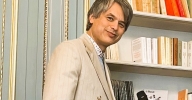
Compassion, the empathetic response to suffering and the desire to alleviate it, is a powerful catalyst for inclusive, equitable solutions to global challenges. By fostering understanding, collaboration, and innovation, compassion drives us to consider the impacts of our actions on vulnerable communities and work together to ensure that the benefits and costs of progress are shared fairly.
Prof. Dr. Thomas Alfred Bauer- Young translator conquers the ancient Greek classic Anabasis – Memoir of the Persian Expedition
- Austria news - Usama Nosshy channel covers Asean's 55th anniversary celebrations at the United Nations in Vienna
- VietnamPlus Newspaper reported about ASEAN's 55th anniversary at the United Nations in Vienna
MOST VIEWED
-
1
Breaking Boundaries: Vietnam's Ancestral Global Day and South Korea join forces for cultural collaboration

-
2
Kaitlyn Nguyen’s journey to the unknown world of magic

-
3
Austria news - Usama Nosshy channel covers Asean's 55th anniversary celebrations at the United Nations in Vienna

-
4
TALKSHOW HUNG KING'S 62: THE MOSAICS OF THE KING XIII

-
5
Ambassador Hans-Peter Glanzer: I would like to be perceived in the end, somebody also has deep sympathy for your country and for your people

The two Kings Philippe and Van der Bellen havedifferent backgrounds, one is of royal origin, and the other is a child of a refugee family (once of noble origin) but now, in the eyes of the European public, both of them are giving off a sense of courtesy, virtue and erudition.
WAJWith the attendance of many international figures, the 80th anniversary of the end of World War II was celebrated at the United Nations headquarters.
Journalist Usama Soliman

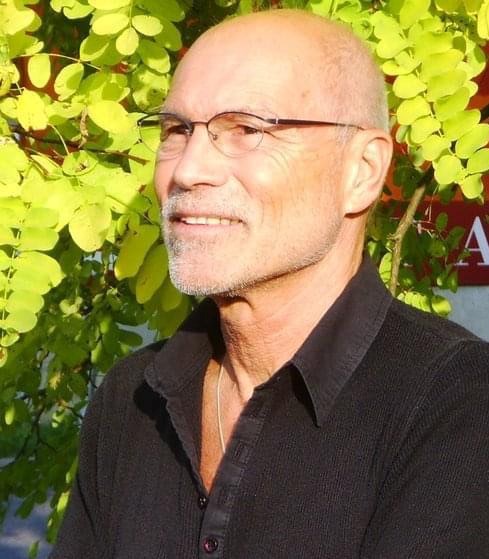
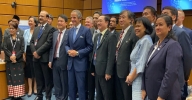
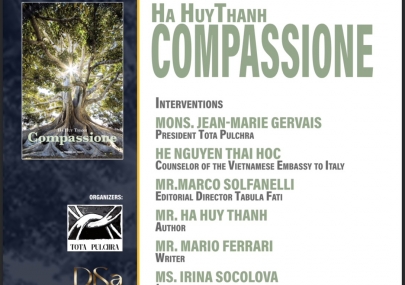
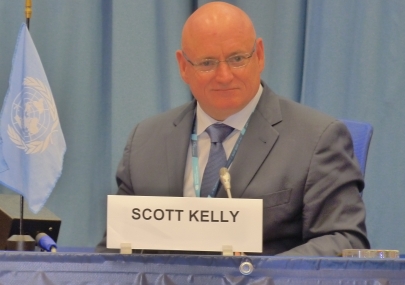
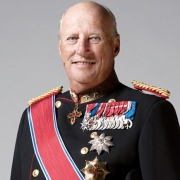
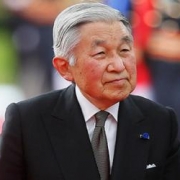
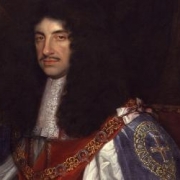
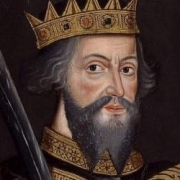


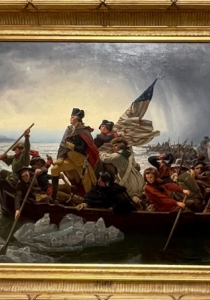
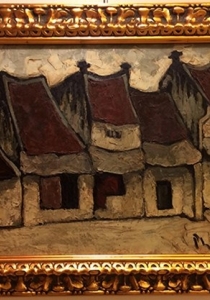

Comment